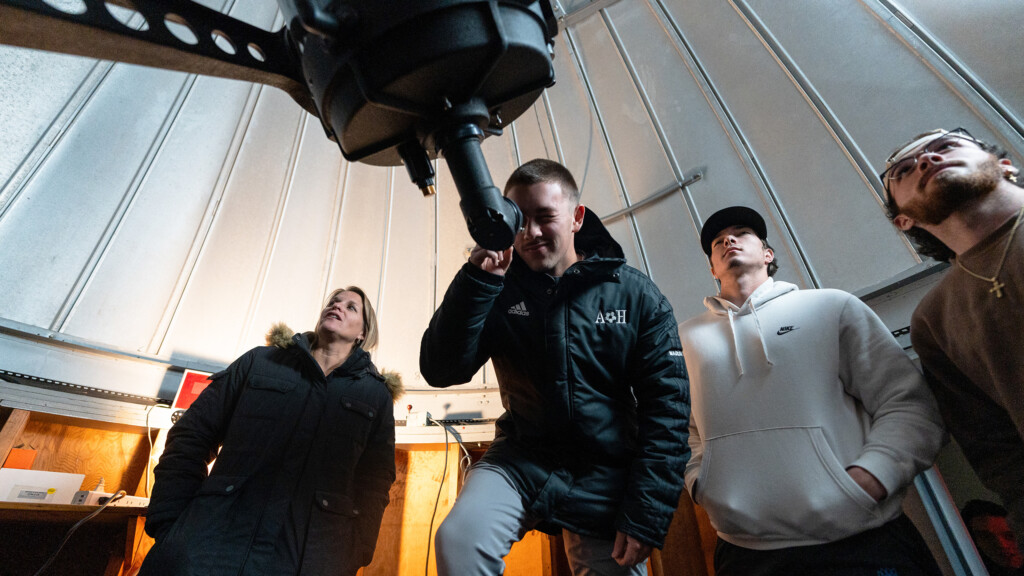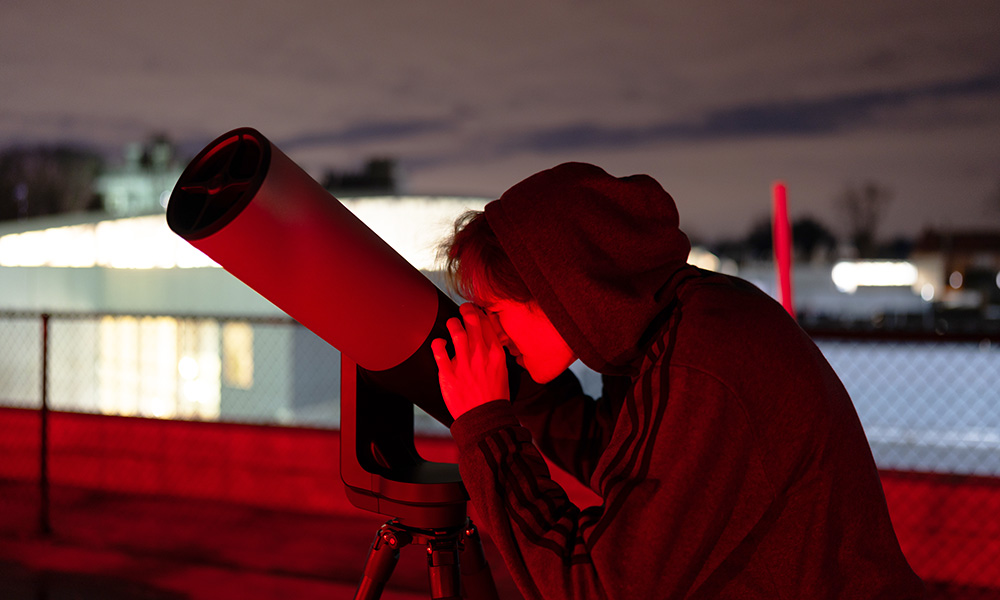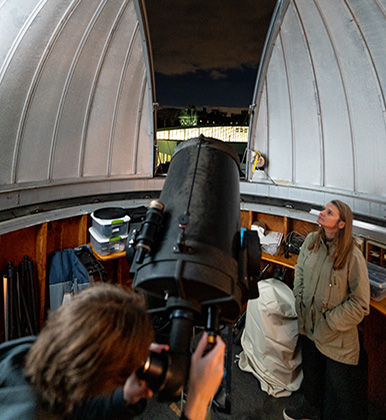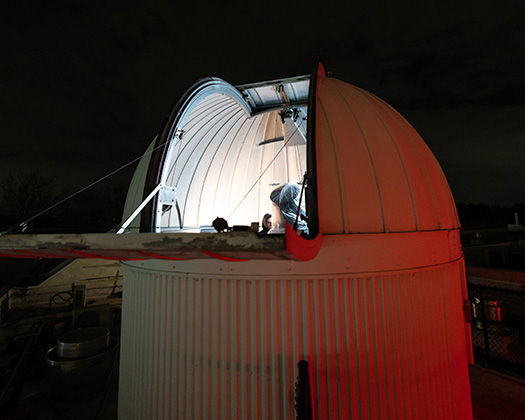Overview
- Degree Level
- Undergraduate
- Degrees Offered
- Minor
- Department
- Chemistry and Physics
- school/college
- College of Arts and Sciences

The Astronomy program at Arcadia University, housed in the Department of Chemistry and Physics utilizes Boyer Observatory, plays a role in the University’s mission to achieve excellence in education, research and public outreach. A minor program in astronomy is for students who wish to enlarge their potential for a career choice or who may be eager to learn more about astronomy than an introductory course can provide. As a student in Astronomy, you will:
Required Course
Discover how the physical world works. This course introduces classical mechanics through real experiments and explores how key ideas in physics have shaped the way we understand the universe today.
Required Course
Explore the universe, from planets and stars to black holes and galaxies. You’ll dive into big questions about space, time, and life beyond Earth, while learning how scientists study the cosmos. Includes hands-on labs that bring astronomy to life.
Required Course
Discover the tools and techniques that are used for observing and imaging objects in space. Learn the basics of the night sky and explore navigating the sky with the naked-eye, star charts, observational apps, and software. Explore various types of telescopes, camera, spectroscopes, and other observing tools. Find out how to process astronomical images and data and connect how data is used in observational astronomy research.
Elective Course
Get hands-on with data using Python. You’ll learn to explore, clean, and visualize data, and use basic statistics and machine learning to find meaning in numbers. No computer science major required, just curiosity and a love of solving problems.



You can participate in the Active Astronomy Student Club's Star Parties and other astronomy themed events held at Arcadia's rooftop observatory.
